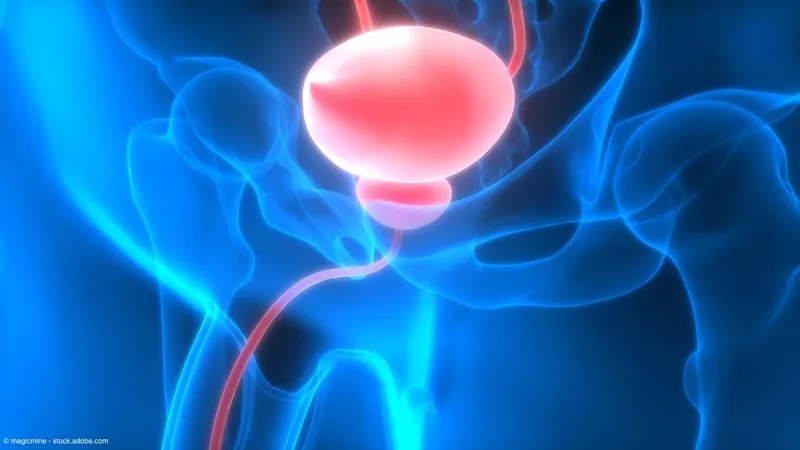
Revolutionary ICG Technique Slashes Surgery Times and Boosts Precision in Bladder Cancer Operations!
2025-01-21
Author: Mei
Groundbreaking research has unveiled a revolutionary technique that promises to transform the landscape of bladder cancer surgery.
The method, which involves an intracutaneous injection of indocyanine green (ICG) in the lower limbs and perineum followed by fluorescent laparoscopy, has been shown to significantly enhance the visualization of pelvic lymph nodes and guide pelvic lymph node dissection (PLND) during radical cystectomy procedures.
Published in the esteemed journal *UroPrecision*, the study reveals that this innovative approach not only reduces surgical times but also substantially improves the accuracy of PLND compared to traditional surgical techniques.
"Integrating ICG and fluorescent imaging into bladder cancer surgery is a game-changer," states senior author Dr. Xiaofeng Yeng. "It is crucial for preventing cancer recurrence with unparalleled precision in locating and excising pelvic lymph nodes."
The study involved 54 patients who underwent radical cystectomy and PLND, with researchers demonstrating the efficacy of ICG injections in visualizing pelvic lymph nodes just one hour post-injection. Remarkably, in 15 patients, the fluorescent signal remained strong for up to four and a half hours, allowing ample time for surgery without compromising on accuracy. Importantly, there were no reports of vascular or nerve injuries associated with this technique.
Comparative analysis between 44 patients who received the ICG injection and 11 who underwent conventional surgery highlighted significant advantages. While the average number of lymph nodes removed was similar in both groups, the accuracy of PLND soared to an impressive 93.41% in the ICG group, compared to 75.91% in the control group—a statistic that should grab the attention of medical professionals and patients alike.
Additionally, the surgery duration was notably reduced: lymph node dissection took an average of 44.07 minutes in the ICG cohort, contrasted with 50.27 minutes in the control group. This not only streamlines the surgical process but could potentially enhance patient recovery times.
The authors emphasized the importance of improved accuracy in lymph node removal, as it leads to less unnecessary excision of fibrofatty tissue—a factor that was reflective of enhanced precision due to the ICG-guided method.
However, the researchers also addressed certain limitations of the study, such as relatively short follow-up times and the need for better specificity in fluorescent imaging techniques. They advocate for further research to explore the long-term effects of this approach and the development of advanced fluorescent probes tailored to various tumor types.
In conclusion, the authors posit that this technique could standardize PLND practices and significantly enhance our understanding of lymphatic metastasis pathways. As innovation continues to drive advancements in surgical oncology, this ICG-guided technique represents a monumental step forward in improving patient outcomes and survival rates in bladder cancer surgeries.

 Brasil (PT)
Brasil (PT)
 Canada (EN)
Canada (EN)
 Chile (ES)
Chile (ES)
 Česko (CS)
Česko (CS)
 대한민국 (KO)
대한민국 (KO)
 España (ES)
España (ES)
 France (FR)
France (FR)
 Hong Kong (EN)
Hong Kong (EN)
 Italia (IT)
Italia (IT)
 日本 (JA)
日本 (JA)
 Magyarország (HU)
Magyarország (HU)
 Norge (NO)
Norge (NO)
 Polska (PL)
Polska (PL)
 Schweiz (DE)
Schweiz (DE)
 Singapore (EN)
Singapore (EN)
 Sverige (SV)
Sverige (SV)
 Suomi (FI)
Suomi (FI)
 Türkiye (TR)
Türkiye (TR)
 الإمارات العربية المتحدة (AR)
الإمارات العربية المتحدة (AR)